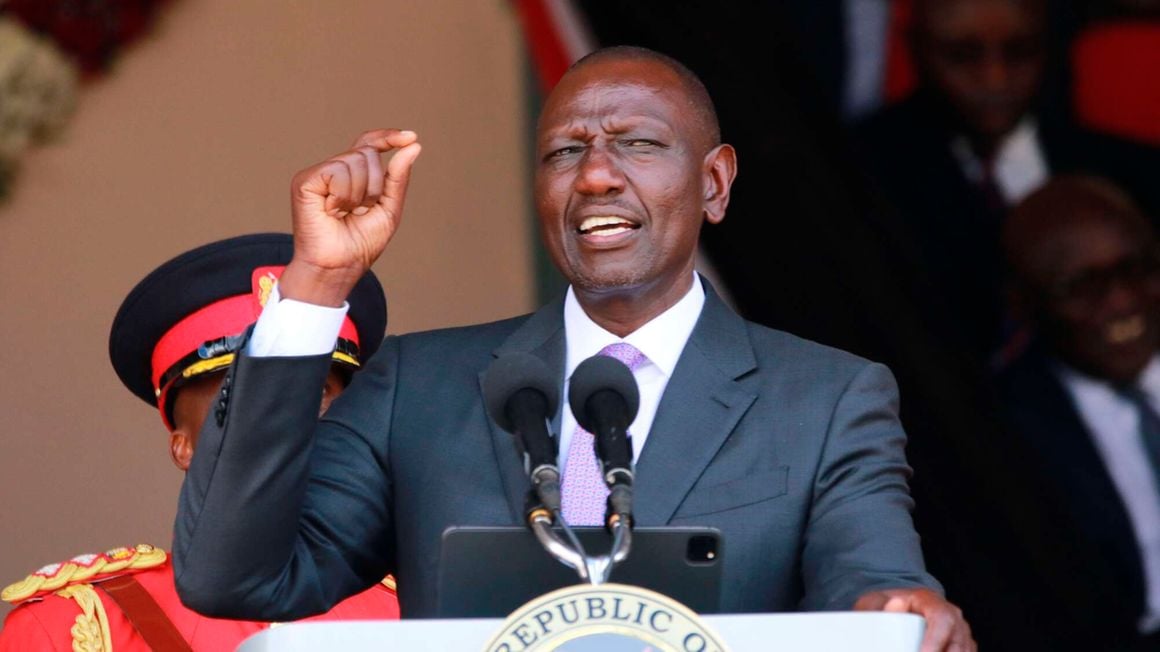President William Ruto addresses wananchi during the 60th Madaraka Day national celebrations at Moi stadium in Embu on June 1, 2023. PHOTO | JOSEPH KANYI | NMG
Kenyans borrowed an extra Sh11 billion between February and May from the Hustler Fund highlighting the thirst for cheap credit, which prompted the State to launch a third phase of the facility now targeting chamas.
President William Ruto, On Thursday, launched the Hustler Fund for groups, seeking to provide cash mainly to informal traders who must register as a group to qualify for the kitty.
He spoke in Embu County during this year’s Madaraka Day celebrations.
Read: Hustler Fund loans hit Sh19bn in three months
The launch came on the day the Head of State announced that Kenyans have so far borrowed Sh30 billion, up from Sh19.6 billion accessed as of mid-February.
The first phase of the Hustler Fund was launched on November 30 last year as the new administration moved in to ease access to credit by individuals, albeit small amounts from as low as Sh500 to a high of Sh50,000.
In March this year, the Head of State launched a remodelled Hustler Fund that has Women Enterprise Fund (WEF) and the microloan product.
“The total number of digital transactions now stands at 42.5 million through which 20.2 million Kenyans have accessed nearly Sh30 billion, and repaid Sh19.7 billion, with seven million being repeat customers,” Dr Ruto said in his Madaraka Day speech.
The President did not disclose the number of borrowers who have defaulted, months after the State first admitted that some beneficiaries had shown signs of distress.
Read: M-Akiba bond to be revived using Hustler Fund savings
The interest rate for the Hustler Fund for chamas remains undisclosed. The interest rate for the one targeting women is seven percent while that for individual loans launched last year in November is eight percent.
The rates are calculated on a pro-rata basis. Details on the minimum amount that groups can borrow, however, remain scanty. By LYNET IGADWAH, Business Daily






